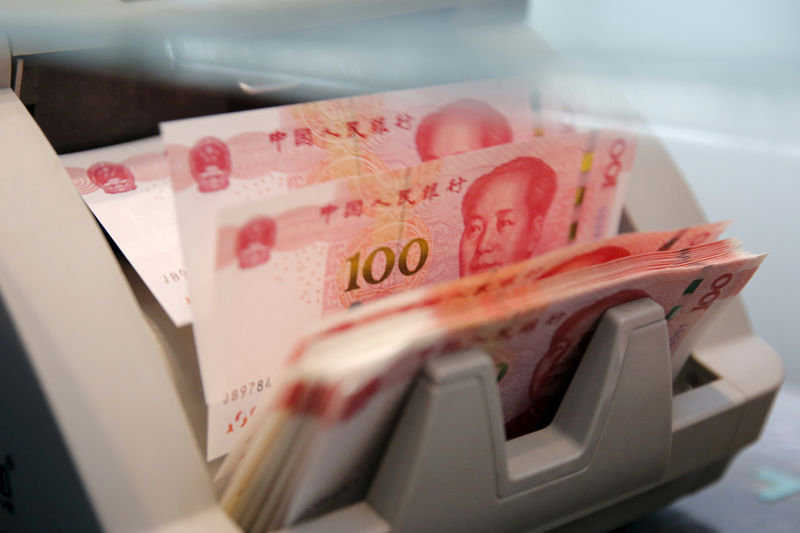 © Reuters. FILE PHOTO: Chinese 100 yuan banknotes in a counting machine while a clerk counts them at a branch of a commercial bank in Beijing
© Reuters. FILE PHOTO: Chinese 100 yuan banknotes in a counting machine while a clerk counts them at a branch of a commercial bank in BeijingSHANGHAI (Reuters) – China will not resort to “flood-like” stimulus in monetary policy next year, although it will consider more cuts as needed to reserves held at commercial banks, local media quoted a central bank adviser as saying in a report on Tuesday.
The Chinese economy will face downward pressure in 2019, while the pace of growth will gradually stabilize, the 21st Century Business Herald quoted Sheng Songcheng, an adviser to the People’s Bank of China (PBOC), as saying.
“Monetary policy will remain prudent and won’t be a ‘flood’. Otherwise, funds will likely flow into the property sector again,” Sheng was quoted as saying by the state-backed newspaper.
There remains room for further cuts in banks’ reserve requirement ratios (RRRs), and Sheng does not recommend broad-based reductions in interest rates, it said.
China will bolster support next year for its economy, the world’s second-largest, by cutting taxes and keeping liquidity ample, the official Xinhua news agency said after last week’s Central Economic Work Conference, an annual closed-door gathering of party leaders and policymakers.
Sheng said China would embrace a proactive fiscal policy in 2019, with the government’s budget deficit ratio likely to rise to 3 percent from this year’s 2.6 percent.
On exchange rates, the central bank adviser said China should defend the yuan at the key seven-per-dollar level.
“The key threshold of seven per dollar is very important. If the yuan weakens past that crucial point, the cost of stabilizing the exchange rate will be greater,” Sheng was quoted as saying.
Sources with knowledge of the policy process told Reuters in October that China was likely to use its vast currency reserves to stop any precipitous fall through the psychologically important level of 7 yuan per dollar
Fusion Media or anyone involved with Fusion Media will not accept any liability for loss or damage as a result of reliance on the information including data, quotes, charts and buy/sell signals contained within this website. Please be fully informed regarding the risks and costs associated with trading the financial markets, it is one of the riskiest investment forms possible.
Source: Investing.com




























